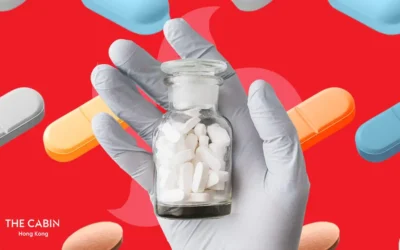Addiction often has a major impact on relationships, and people in recovery often discover they need to do damage control. Here we offer some tips on how to approach repairing relationships in recovery.

Sharelines
Rebuilding relationships during rehab and recovery is important for healing the pain caused by addiction. Completing a recovery programme is a great accomplishment, but does not mean your life will return to normal straight away. Repairing relationships damaged by addiction can be one of recovery’s hardest challenges.
It can take time to regain trust from the people who have been hurt by your actions. Some relationships may not return to normal. Some people cannot forgive and forget. The possibility of losing an important relationship is actually one of the most common reasons for people to seek treatment for addiction. Simply stopping alcohol or drug use is not always enough to restore a relationship – it requires honesty, acceptance and patience.
Manage Your Expectations
It is normal to come away from having completed a rehab programme with a sense of optimism about the future and pride in your accomplishments. After all, it took a lot of courage and strength to seek treatment and begin the recovery process – an admirable feat, to be sure. But keep in mind that unrealistically high expectations are a common pitfall of early recovery. This applies to your relationships, too.
Many people in recovery expect to be received as homecoming heroes, only to find some of their loved ones may not be pleased to see them at all. Some of those who have been waiting at home may accept you with open arms, others may act cautiously and some may be less than thrilled to see you.
The resulting realisation that there could still be lots of work to do can be disheartening and even lead to feelings of resentment. Recovering folk may feel that they have tried their best, but their loved ones do not appreciate or acknowledge it. This type of negative thinking often becomes an excuse for relapse, which is then blamed on their loved ones. In order to counteract this, it is important for newly sober people to develop realistic expectations surrounding their relationships. Those in recovery must come to terms with the hurt they have caused and give their loved ones the time and space they need to heal.
The recovering person must actively work toward rebuilding trust. Some of the best ways to do this include maintaining sobriety and creating a better life in recovery.
Communicate Honestly
Communication is key, especially for those in recovery. You can begin by letting your loved ones know that you have received help and completed a recovery programme. Make them aware that you are rebuilding your life and want to repair your relationship. It is ideal to do this in person if possible.
Those who have experienced addiction have often dealt with denial. To live your life free from denial, you have to come to terms with the mistakes you have made and the pain you have caused others as a result. Instead of feeling guilty and shameful about the past, take the time to apologise to those you have hurt and ask for forgiveness. You might not get it, but it is important to express your feelings and to free yourself from the shame. Be honest in all that you do and prove yourself consistently in order to gradually rebuild trust and respect.
Own Your Mistakes
There are several things that you can do to repair relationships during recovery. You can apologise for the pain you have caused and give the other person the chance to express their true feelings, without holding back. Remember that actions always speak louder than words – you will have to actually show people that you have changed, instead of simply talking about it. It is also essential to realise that others do not have to forgive you. Forgiveness must be honest, and earned.
Get Involved
Relationships require active participation. When you were using, your loved ones were not as important to you as your addiction, and you were not as involved with them. If your relationship has fallen apart due to your neglect, then it is important to make an effort to spend more time with your partner. If your children have been neglected, then take the time to become involved in their lives again.
Combat Co-dependency with Counselling
Living with an addict can be incredibly stressful, which is why many partners of addicts end up becoming co-dependent. Their life comes to revolve around the addicted partner and they put their own needs and feelings aside. It is common for these people to lose their sense of self, which also presents challenges when the addict chooses to become sober. The co-dependent partner must then readjust to the new circumstances, which can be difficult to do.
It can take some time before a healthier relationship develops. In these situations it is helpful for partners to attend individual counselling as well as couples therapy to get relationships back on track.
Seek Support
Attending a continuing care programme and/or support group shows your dedication to staying sober. Meetings are also helpful for connecting with other people who are also in the process of rebuilding relationships. Hearing other people’s stories or receiving support can help dramatically, and make it easier for you to stay on track. Lastly, practising patience is a must if you want to repair relationships during recovery. Repair what you can and continue to do your best to stay on the path to recovery and live a sober life that you can be proud of.
Addiction affects the lives of not just the addicts, but those who surround them. The Cabin Hong Kong offers a family treatment programme to bring a client’s loved ones into treatment with them, as well as individual counselling for partners. If you are ready to embark on the path to recovery and start rebuilding your relationships, contact us today to see how we can help.




